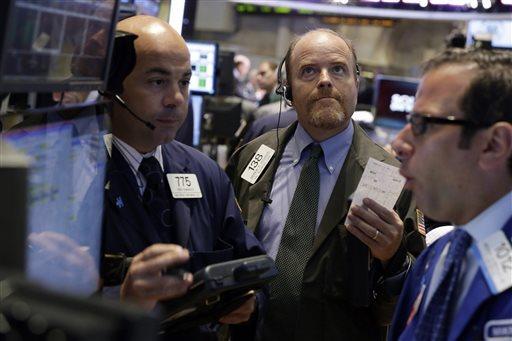It’s been almost five years since the greatest financial crisis since The Great Depression, but punishment doesn’t seem to be coming for those who caused this crisis.
Essentially, this Great Recession was sparked not by a major macro-economic force like war or an oil embargo, but by several banks who got greedy and put the financial health of the nation at risk.
One of the banks in question is JPMorgan Chase. It is the largest bank in the United States and last year, the bank’s infamous trader Bruno Iksil was responsible for a $6 billion loss on a bad derivative trade.
Iksil, also known as the “London whale,” is now cooperating with the authorities in a deal to avoid prosecution.
Now two other traders are on the hook for falsifying records on investments and committing wire fraud and falsifying SEC filings. It appears that after authorities let traders like Iksil off the hook, justice is finally being done. And by the way, the trading loss of $6 billion didn’t even stop JPMorgan Chase from breaking its annual profit record, while students continue to pay overdraft fees and interest on student loans.
This is just one speck on a major epidemic of financial crimes that led up to the 2007 crisis and beyond. Before the crisis, Goldman Sachs sold mortgage-backed securities to investors and pitched it as a AAA grade investment (AAA is the safest investment grade). After the sale, Goldman Sachs then placed bets that the MBS they sold to the investors would go down in value. They even set it so the more the investors lost, the more Goldman Sachs would make. As expected the investment tanked and Goldman made a killing.
After two years of waiting for justice, the SEC fined Goldman Sachs $550 million for those trades. From the company’s perspective, this is business as usual. To us, $550 million is a huge fine and justice has been done, right? But Goldman Sachs makes that much in just under three weeks.
Perhaps the most shocking example is that of HSBC, a British multinational bank, which calls into question the justice system itself.
Last December, HSBC was fined a record $1.9 billion for laundering $881 million for two drug cartels. This seems great for justice, but it’s misleading.
When a college student is caught with an illicit drug, the case is often harsh for the purpose of “setting an example.” Today, we know that HSBC laundered hundreds of millions in drug money, and they are only fined? Why have there been no indictments?
The Justice Department had responded and stated that they didn’t want to charge the bank executives because they would have to revoke their banking licenses. By doing this it may cause another banking crisis.
So now banks aren’t just “too big to fail”, they’re too big to jail. With two former JPMorgan Chase employees facing justice, I can’t help but feel bittersweet. But unfortunately, justice now is just too little, too late.
Joshua Hajiakbarifini is a 24-year-old political science and ecoonomics senior from Baton Rouge.
Opinion: Penalties not severe enough for Wall Street
August 28, 2013

Trader Andrew O’Connor, center, works on the floor of the New York Stock Exchange, Tuesday, Aug. 27, 2013. Worries about a potential military strike against Syria are dragging down the U.S. stock market in early trading. (AP Photo/Richard Drew)




